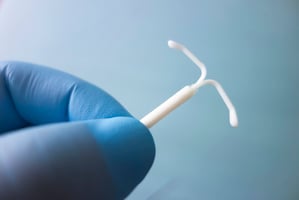Warnings of Valproic Acid’s Fetal Risks Fail To Boost Concurrent Contraceptive Use

Among women who were treated with valproic acid, contraceptive use remained low and pregnancy rates have not declined since 2005, despite several safety communications and black box warnings about the drug’s risks during pregnancy, according to a study in JAMA Network Open.
Although widely used for epilepsy, bipolar disorder, migraines, and other conditions, valproic acid has been associated with fetal risks such as congenital defects, autism spectrum disorders, and cognitive deficits. “In a 2013 Drug Safety Communication, the FDA had stated valproic acid should only be used during pregnancy for epilepsy and bipolar disorder if there is no other viable medication for a patient,” wrote Nicole E. Smolinski, Pharm.D., of the University of Florida in Gainesville, and colleagues.
Smolinski and colleagues examined U.S. claims data for medical procedure and pharmacy visits for 70,000 females aged 12 to 44 who had private insurance and were treated with valproic acid at some point from 2005 through 2020. Researchers examined the indications for valproic use, prescription contraception overlap of at least one day with valproic acid treatment, and pregnancies during treatment.
Mood disorders were the most common indication for which valproic acid was prescribed to women during childbearing years (43% of treatment episodes), followed by migraines (20%), and epilepsy (15%), researchers found. However, just 22% of valproic acid treatment episodes overlapped with contraceptive use. Pregnancy rates among women taking valproic acid remained steady over the 15 years from 1.74 per 100 person-years in 2005 to 1.90 per 100 person-years in 2019.
Researchers identified 723 pregnancies among women taking valproic acid. Pregnancy rates were highest among those taking valproic acid for mood disorders (2.32 per 100 person-years) and lowest for epilepsy (1.22 per 100 person-years).
“With epilepsy providing the strongest favorable benefit to risk for use during pregnancy, the discovered lower pregnancy rates may seem surprising,” Smolinski and colleagues wrote. “We speculate that because most studies that demonstrate fetal risks were conducted in patients with epilepsy and typically published in neurology-centric journals, perhaps neurologists may be more informed than other specialties about the risks.
“Our findings indicate a need to enhance efforts to mitigate prenatal exposure to valproic acid, especially for indications where risk of use during pregnancy outweighs benefit,” they concluded.
For related information, see the Psychiatric News article “Exposure to Valproate in Utero May Increase Risk of Autism, ADHD.”
(Image: Getty Images/iStock/Caiaimage/Adene Sanchez)
Don't miss out! To learn about newly posted articles in Psychiatric News, please sign up here.





